 INDUSTRY INDUSTRY |
 Life-giving foreign investments Life-giving foreign investments |
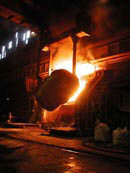
In the first eight years that followed the fall of the Communist regime in the former Czechoslovakia, the Slovak industrial sector struggled through a grim and miserable epoch. Always being a heavy industry rather than a hi-tech country, armaments and related machinery were located in Slovakia. Large unproductive companies operating in a controlled and non-competitive environment could not survive the transition period using the same structure that existed in 1989. The closure of factories and bankruptcies that plagued Western areas of Slovakia contributed heavily to high unemployment levels and to evident regional discrepancies.
Industrial companies that were located in remote areas were unable to compete in the new market-economy environment.
Slovak employment has never fully recovered since Czechoslovakia decided to close its arms-making facilities in the region in the early 1990s. At the time, the companies located in Dubnica and Vahom were among the largest industrial employers in Slovakia. The industrial sector represented 50 % of the whole value added generated by the Slovak economy. After 1989 this share fell to 25%.
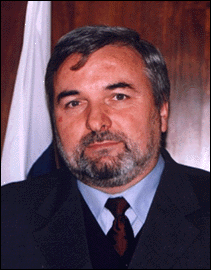
The forced industrial shakedown suffocated the entire country's economy for several years. Fortunately, some newly implemented strategies have lead to the launch of a restructuring process, necessary to enhance the future growth of the sector. An International Monetary Fund analysis states that most Slovak industrial companies have already overcome the worst period of the transition process. "When the Government got into power in 1998, they mainly focused on the improvement of the business environment," stressed Mr. Lubomir Harach, Minister of Economy . Light industry and services are now the most successful sectors of the Slovak economy.
Industrial companies owned by foreign investors are the most profitable ones in Slovakia; it is also the only industrial segment that provides increasing employment opportunities. Their stake in the Slovak industry is constantly growing and the impact of foreign companies on the Slovak economy is astonishing. For example, Volkswagen Bratislava is a phenomenon; the company operates as the largest non-financial company in Slovakia and also the largest Slovak exporter, accounting for 16% of total Slovak exports. The whole Slovak economy is dependent on Volkswagen. Every year, during summer months, when the factory closes for holidays, Slovak export figures drop steeply and the foreign trade balance deficit increases dramatically.
The flow of foreign direct investment into Slovakia was very slow during the 1990s, however in 2000 an influx of foreign investment had a snowball effect upon the industrial market by enhancing activity within the sector.
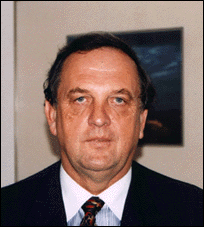
From 1998, both privatization and Greenfield investments increased significantly, despite a slight recession that occurred before the legislative elections in 2002. Before 1998, the privatization process favored domestic investors, however after this date when the tenders for the privatization of large state monopolies where opened to foreign bidders there was a dramatic inflow of FDI into Slovakia. "There has been a significant change when it comes to the investment climate in Slovakia over the recent years," stressed Mr. Peter Mihok, President of the Slovak Chamber of Commerce and Industry.
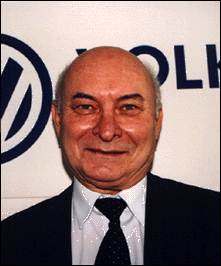
According to the latter, the most obvious advantage for FDI in Slovakia is its favorable labor cost. The Slovak government has launched several new projects to attract foreign investment. First, industrial parks are being built in Slovakia and a tax holiday act has been created. "The impact of industrial parks on the Slovak economy is clear: construction activities and employment are going to rise," says Mr. Jozef Uhrik, Spokesman of Volkswagen Bratislava. However, tax holidays for foreign investors have been criticized by the EU and will have to be abolished before joining the Union.
Engineering is traditionally one of the bearing sectors of the industry, contributing to more than 17 % of the employment level in the whole industry. Automotive manufacturing owns the most important share in this sector, which is particularly supported by Volkswagen Bratislava. Considering the cross-section characteristics of the automotive industry, expansion from a manufacturing perspective has a direct effect upon production levels within other industries, namely chemical & electro technical industries, rubber and plastic manufacturing, and metallurgy. Next to the development of the automotive industry, some potential can be seen in the manufacturing of kitchen appliances and in the area of road construction, machinery and energy production equipment for investment units.
Emerson Electric, international producer of electric
and electro technical products and their components,
is one of the most successful foreign companies
operating in Slovakia. |
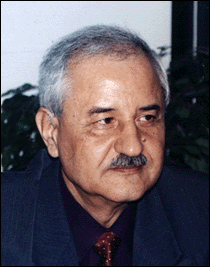
Emerson is now the direct supplier of electric models, pumps and controls for Whirlpool, another foreign manufacturer that has been present in Slovakia for over 10 years. Whirlpool will take part in founding one of the first Slovak industrial parks. "In Slovakia, there are ambitious intentions to build several industrial parks especially in areas with high unemployment, that would give great opportunities to investors," said Mr. Martin Ciran, Managing Director of Whirlpool
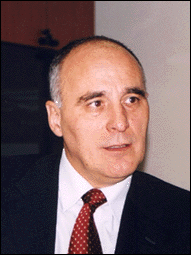
Production imbalance from the regional point of view is a specific feature of the Slovak industry. Most production facilities are concentrated in western parts of Slovakia. Siemens, another large foreign investor, is also headquartered in Bratislava, and has successfully branched out into the surrounding areas. Siemens is an excellent example of a foreign company that is very successful in providing services for the public sector.
Prior to November 2000, the eastern region of Slovakia depended on one company, the metallurgical plant VSZ Kosice. With an unemployment rate of over 30 %, around 25,000 people were employed by VSZ, with a further 236,000 people from the Kosice area who directly or indirectly made their living from the activities of the VSZ group. Therefore, the acquisition of VSZ Kosice by the American USX Corporation through its daughter company US Steel Kosice has in recent years been one of the most significant foreign investments in the Slovak industrial sector. The USX Corporation took over VSZ's steel-making operations and transformed it into US Steel Kosice. "VSZ has kept only activities not directly linked with the metallurgical production," says Dr. Anton Bidovsky, Chairman & CEO of the "new" VSZ.

Negotiations surrounding the deal involved many Slovak political representatives, including the Prime Minister Mikulas Dzurinda and President Rudolf Schuster. A completely new business environment was created within the company and thanks to strategies implemented by the new US Steel management the once struggling Slovak metallurgy sector has regained its momentum and is moving towards a brighter future. "We have developed different philosophies through our service centers, we established a market price," says John Goodish, President of US Steel Kosice.
Over the ten-year period following the acquisition of VSZ, US Steel Kosice plans to invest USD 700 million into the company. Along with the company's outstanding performance, US Steel's management endeavors to be actively involved in promoting Slovakia abroad. Through its Economic Development Center, US Steel has launched various programs to help promote the region of Košice in order to attract more foreign investors.
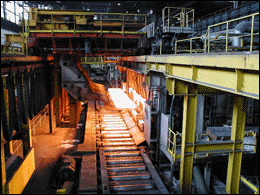
"We believe that in Eastern Slovakia, with just a small amount of investment, there is a fair number of industrial sites that could easily attract investors," says Mr. Goodish, who is confident that new investors will come to Slovakia soon. He strongly believes that the main asset Slovakia has to offer foreign investors is its people and concludes by saying, "We have an exceptionally well-trained work force. And I think that any company should come here too and tap those resources".
Slovnaft, the largest Slovak refinery located in Bratislava dominates the Slovak chemical industry,. Just as other domestic companies, Slovnaft was looking for a foreign strategic investor to help the company expand and increase its profitability.
After the introduction of the Hungarian oil company MOL, Slovnaft experienced a sharp increase its productivity very and soon became one of the most competitive refineries in the whole Europe.
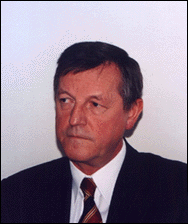
"Basic problems of companies in post-communist countries are in the management of finance and marketing," Mr. Slavomir Hatina, Chairman of the Board of Directors of Slovnaft said for World Investment News Ltd regarding the transition process. Slovnaft's main advantage is that it has a dominant position in the domestic market, where the company supplies over 80 % of total fuel consumption.
As for the wood manufacturing industry, it is just
waiting for its time. Slovakia has excellent conditions
in the wood and paper manufacturing industry, being
a top producer of high quality wood mass. One major
Slovak producer in the paper manufacturing industry
is SCP Ruzomberok, half owned by Austrian Neusiedler.
"When we look at the map and see the percentage
of forests in Slovakia, we are at the third place
in Europe. Finland and Sweden are just ahead of
us," noted Minister of Economy Lubomir Harach.
|

